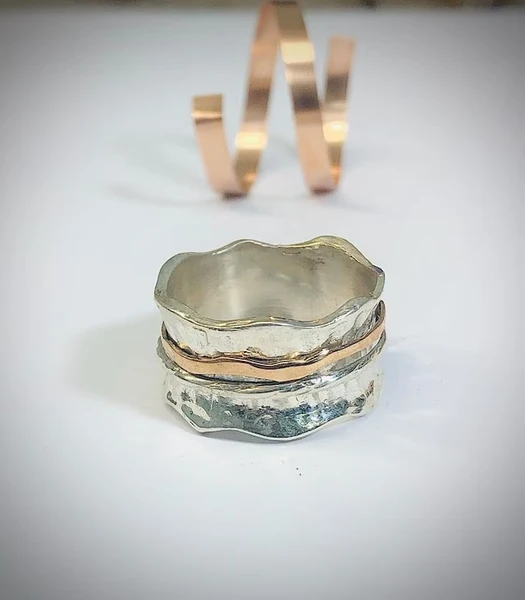The Difference Between Handmade and Machine-Made Judaica Jewelry
In a world where mass production dominates much of the fashion industry, Judaica jewelry — those deeply symbolic and spiritual pieces cherished by Jews around the world — stands at a unique crossroads. Should we embrace the precision and affordability of machine-made items, or preserve the soul and tradition embedded in handmade artistry? As someone who has spent a lifetime crafting Judaica jewelry by hand, I believe the answer lies in understanding the real differences between these two approaches.
Handmade Judaica: Where Craft Meets Soul
Handmade Judaica jewelry is more than an object—it is a vessel of emotion, tradition, and intent. When a piece is handcrafted, each detail is considered with care. The artist brings their own interpretation, energy, and sometimes even prayer into the process. Whether it’s a Star of David, an opal pendant, or a Chai symbol, these items are often crafted not just for beauty, but for meaning. No two handmade pieces are ever exactly the same. The slight imperfections and unique textures — the individual design choices — all tell a story. They echo centuries of Jewish craftsmanship (from Yemenite filigree to Jerusalem stone inlays), techniques that are handed down person to person, not downloaded from a machine. A handmade piece carries the signature of its maker, even if it’s unsigned. It is, quite literally, touched by a human being. In the realm of Judaica, where tradition and spirituality intertwine, that human touch matters. It means your piece was made with kavanah (intent/focus). When you wear or gift a handmade item, you’re connecting to the artisan’s passion and to Jewish heritage in a very tangible way.
Machine-Made Judaica: The Power of Precision
Let’s not dismiss machine-made jewelry outright. There’s certainly a place for it in the community. Machine-made pieces offer consistency, scalability, and affordability. For families looking to buy a set of matching necklaces for a bar mitzvah class, or a batch of identical pendants as wedding gifts, machine-made jewelry provides convenient uniformity at a lower price point. Modern manufacturing technology can replicate intricate designs with laser precision. You’ll get clean lines, smooth edges, and flawless finishes that are hard to achieve by hand at scale. These pieces are efficient to produce, widely accessible, and perfectly suited for commercial distribution or large events. However, here’s what might be missing: soul. Machine-made pieces might shine brilliantly, but they don’t breathe. They don’t tell the story of an artisan’s journey or hold the weight of generational knowledge. They have no fingerprint — only a printout. For everyday wear and budget-friendly options, machine-made Judaica serves a need, but it may not stir the same emotional connection as something lovingly handmade.
Why the Difference Matters
In the realm of Judaica, jewelry isn’t just fashion—it’s identity. It’s belief. It’s continuity. A handmade piece often becomes a family heirloom, passed down with stories and memories attached. That silver statement ring your grandmother wore, with a slightly uneven engraving of the Shema, carries her spirit and the touch of the person who made it. A machine-made item can absolutely serve a purpose and be cherished for its own reasons, but it rarely accrues the same kind of lore or emotional patina over generations. Some customers walk into my studio not just to buy a necklace, but to connect — to a past, to a place, or to a prayer. That’s something no machine can replicate. When you understand the difference, you can make a more informed choice: Do you want a symbol, or a story? A product, or a prayer in metal form?
The Bottom Line
If you’re choosing a piece of Judaica jewelry, ask yourself: What am I really buying? Both handmade and machine-made pieces have their merits. The machine-made might offer a beautifully polished symbol of Judaism that’s affordable and uniform. The handmade offers a unique story and a slice of living tradition. Neither is “wrong” — but they speak to different values. For us, handmade Judaica jewelry isn’t just jewelry. It’s living tradition. It’s a legacy you can wear. Whether you opt for the handcrafted or the machine-precise, let your choice be mindful. After all, the beauty of Judaica jewelry lies in what it represents: our history, our faith, and the personal connections we forge with these precious pieces. Choose the one that speaks to your heart and honors the story you want to carry forward.

